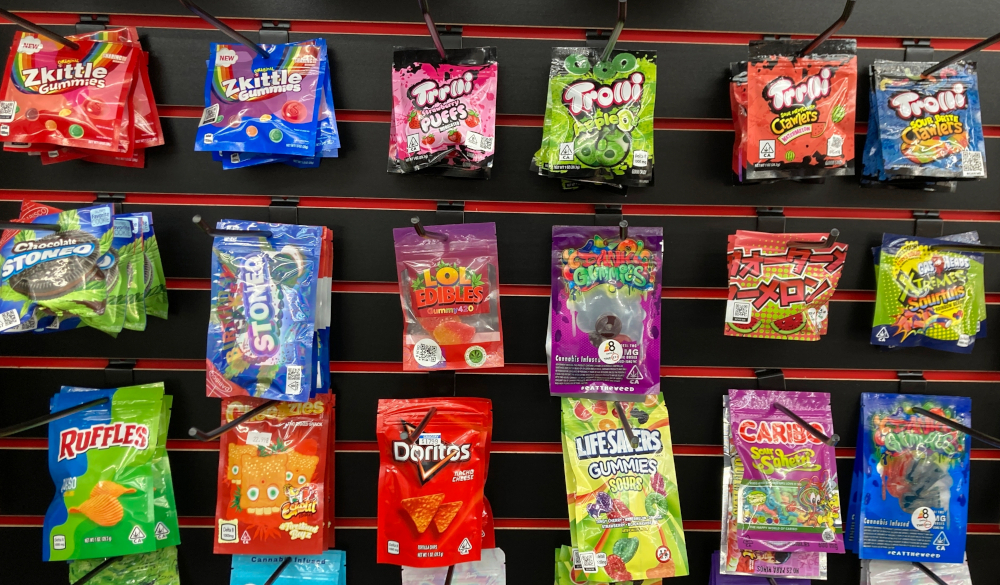Cannabis regulators from 45 states have called on the U.S. Congress to define “hemp” as a crop grown exclusively for industrial or agricultural purposes to close loopholes that have allowed unsafe synthetic THC products to proliferate.
In a letter sent last week to agriculture committees in the Senate and House of Representatives, the Cannabis Regulators Association (CANNRA) urged the changes be included in the 2023 Farm Bill, expected to be passed by the end of the year.
The changes would shore up language in the 2018 Farm Bill, which legalized hemp federally but didn’t account for synthetic THC products made from hemp-derived CBD.
The loophole
“The Agriculture Improvement Act of 2018 (the 2018 Farm Bill) was drafted with a focus on agricultural commodities and non-intoxicating hemp products. However, the language of the bill has inadvertently resulted in a thriving market for intoxicating cannabinoid products that are included (or claim to be included) within the definition of ‘hemp,’” the letter observes.
As the market for CBD extracts boomed and then crashed quickly in the wake of the 2018 Farm Bill’s passage, shady producers found a market for hemp-derived CBD among makers of delta-8 and other “high” producing formulations, which quickly proliferated and are widely available at common retail outlets, often in packaging that mimics leading brands of candy and other treats targeted at children.
“In the absence of federal clarity and regulation over finished cannabinoid products, state and territorial governments have been left to implement approaches to protect consumers,” CANNRA said in the letter. “These approaches vary, and are generally different across jurisdictions, creating a regulatory patchwork for hemp-derived products.
“Additionally, enforcement of state-based regulations by state agencies is difficult when hemp-derived products are produced out of state and shipped directly to consumers across state lines through the mail. For these reasons, federal regulatory engagement is warranted,” the association said.
Clarify THCA
The letter also suggested that the bill should more clearly address hemp-derived THCA in the context of hemp. THCA is the precursor to delta-9 THC and can be converted to a synthetic form of delta-9 THC – the more common form of THC that occurs naturally in marijuana plants – when heated, combusted, or aerosolized. State cannabis programs define total THC in terms of THCA plus THC.
The regulators also said a federal agency should clarify whether synthetic cannabinoids are allowed under the definition of hemp-derived cannabinoids, and give guidance on approved production and manufacturing practices.
Suggested definitions
CANNRA suggested the following definitions:
Hemp: “The term ‘hemp’ means the plant Cannabis sativa L. and any part of that plant, whether growing or not, with a total tetrahydrocannabinol concentration of not more than 0.3 percent in the plant on a dry weight basis. The term ‘hemp’ does not include viable seeds from a Cannabis sativa L. plant if that plant exceeded a total tetrahydrocannabinol concentration of 0.3 percent in the plant on a dry weight basis.”
Hemp-derived cannabinoid products: “The term ‘hemp-derived cannabinoid products’ means any hemp-derived product that is not the raw plant and is extracted, derived, infused, processed, or manufactured that contains cannabinoids in any form and is intended for human consumption or inhalation, including, but not limited to: combusted, aerosolized, or inhaled products, ingested products in any form, and topical products.”
CANNRA’s correspondence to Congress this month follows a letter the association sent to key Congressional committees in July which suggested a national framework be established for all hemp-based cannabinoids – including CBD and any downstream products made from CBD as well as other minor cannabinoids present in industrial hemp.
Read the full article here









